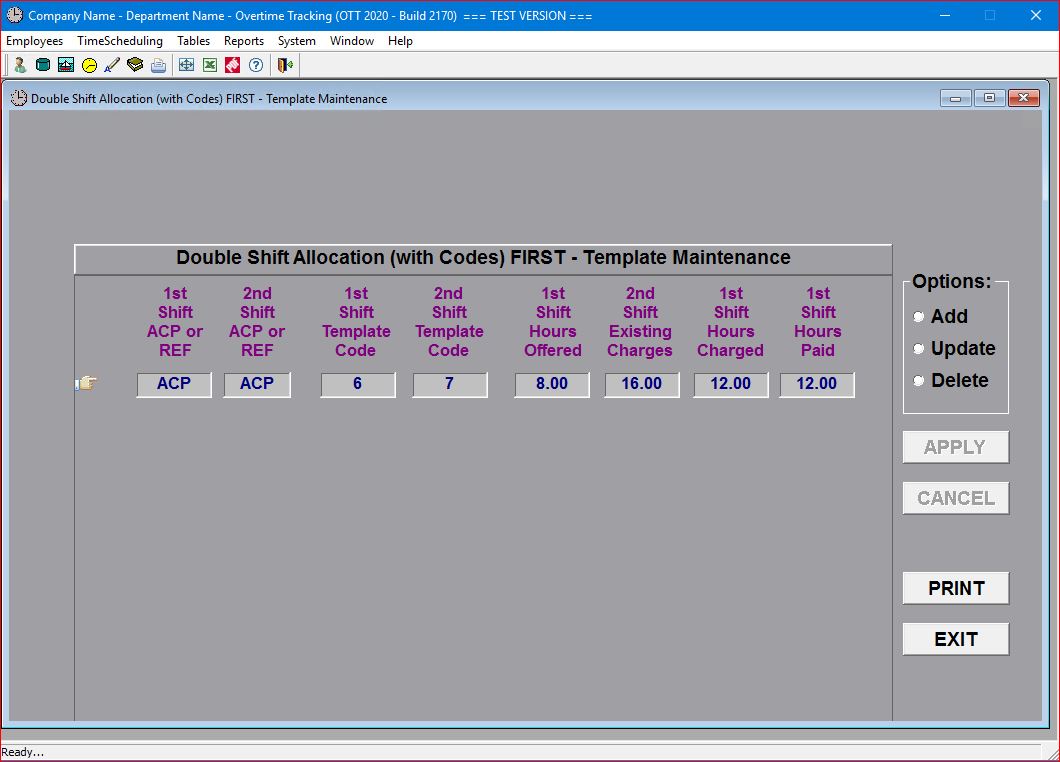
Select the Tables | Template OT Allocation | Double Shift - PRIOR with Codes main menu option.

The system will display the standard table maintenance screen.

The Double Shift Allocation - PRIOR (with Codes) maintenance screen allows you to Add new entries, Update existing entries, and Delete entries.
The Double Shift Allocation - PRIOR (with Codes) table (like most of the OT Allocation tables) can be confusing, but these tables are probably the most critical tables for proper operation of the Overtime Tracking system. When you charge overtime the actual charged hours are retrieved by the system from these tables and each table plays a part in correctly "calculating" the charged hours for the number of overtime hours being offered.
Using the first row of the table in the screen print above, this table would be used as follows:
An overtime assignment already exists in one of an employee's seventh day shifts (template code "7") for a charge of 16.00 hours for a refusal (Time Scheduling code "REF")
You need to offer the employee another 8.00 hours of overtime in the shift that is adjacent to the 16.00 hour charge, but is PRIOR to that shift and is one of this employee's sixth day shifts (template code "6")
This employee also accepted this overtime offering (Generic Time Scheduling code "ACP") so the system would use the information from the first row shown above in this table to return a charge value of 12.00 hours for this overtime assignment which is being accepted.
The fields that MUST be populated in this table are as follows:
Generic Work (ACP) or Refused (REF) code - 1st Shift - enter ACP for worked hours and REF for hours NOT worked.
Generic Work (ACP) or Refused (REF) code - 2nd Shift - enter ACP for worked hours and REF for hours NOT worked.
Hours Offered - 1st Shift (i.e. "offered" hours for the shift adjacent to and PRIOR to a shift that already contains an overtime charge)
Hours Charged - 2nd Shift (this would be the charge that has already been entered into the system for this employee)
Hours Charged (the number of hours to be "charged" for the overtime offering)
Hours Paid (the number of hours to be "paid" for the overtime offering, used mostly for special reports in the system)
IMPORTANT: Most of the common charges that you will encounter while entering overtime assignments have already been populated in each of the Overtime Allocation Tables for you. The Overtime Allocation Tables with Time Scheduling codes allow for a finer refinement of the Overtime Rules (based on your local union contract) and are basically only used for "exception-type" situations. As such, all entries in these tables MUST be entered manually. The system will search for entries in these tables BEFORE moving on to the standard "Double Shift" tables, but, for obvious reasons, the system can not and does not "anticipate" any "missing" entries in these tables.